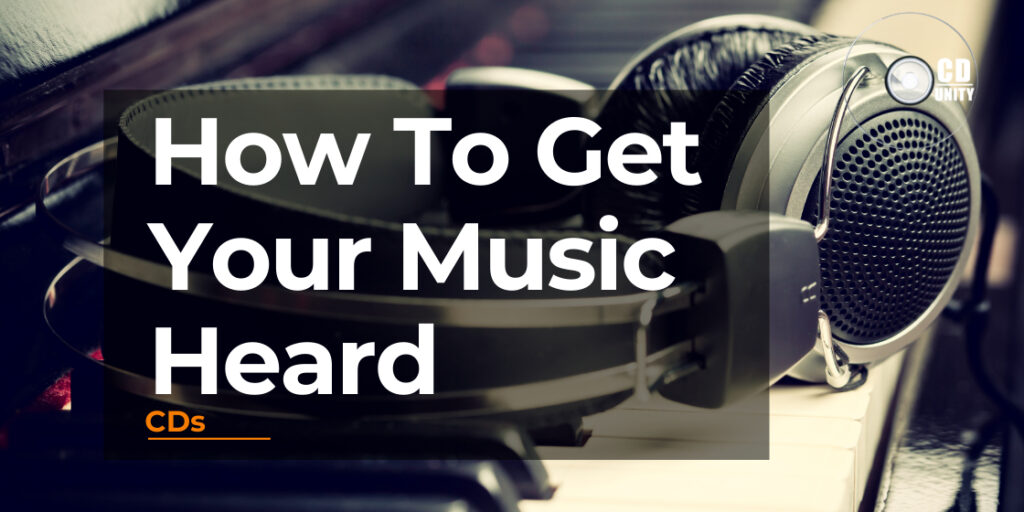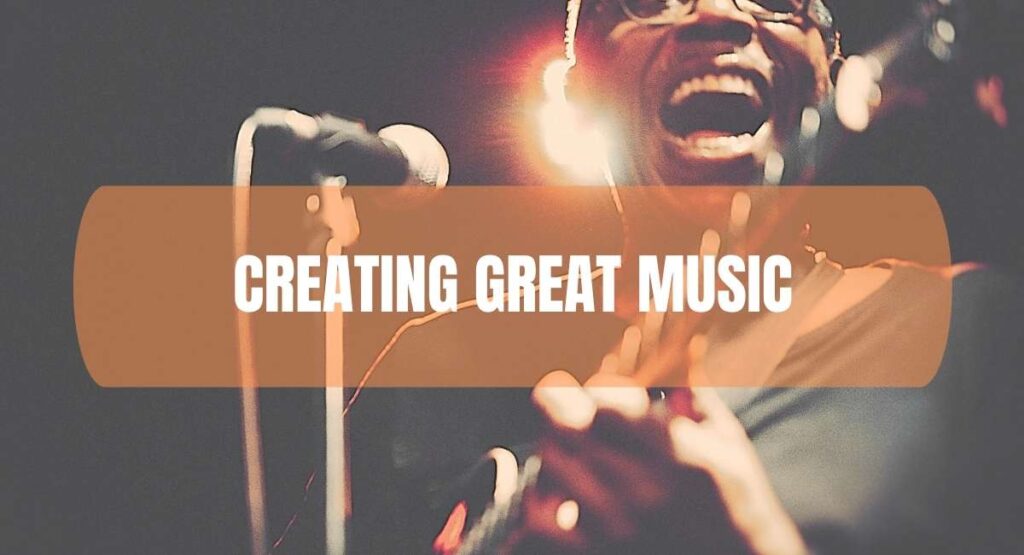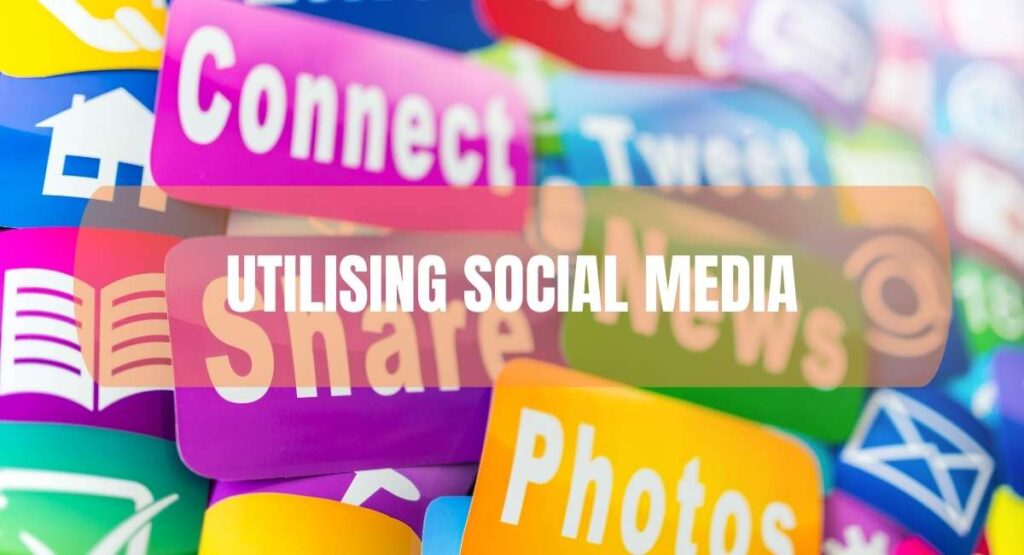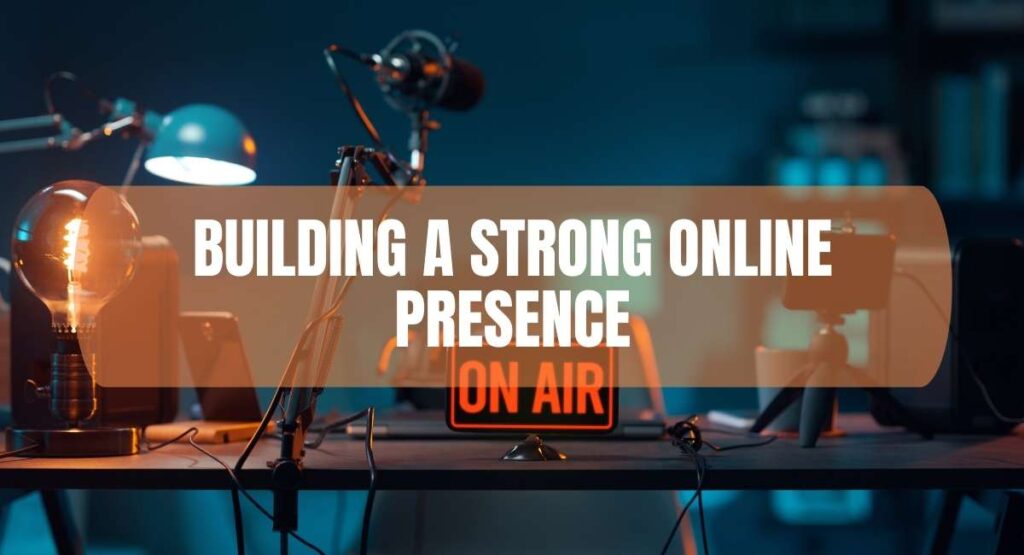
How To Get Your Music Heard: Music Industry How To
The success of your career largely depends on how well you can promote and share it.
Luckily, with the use of various digital marketing techniques and technology, getting your music out there is easier than ever before.
From strategically setting up social media pages to collaborating with influencers and securing placements on streaming services, this blog post will give you some essential tips for getting your music heard.
Table of Contents

Creating Great Music
Writing and recording top-quality music that appeals to your target audience, understanding them, and remaining true to your personal style is key for getting your music heard.
Writing And Recording Quality Music
As an up-and-coming artist, writing and recording great music is essential for getting your name out there and achieving success in the music industry.
Quality songwriting creates a better product to send out into the world; this doesn’t just mean your song will be more likely to have commercial appeal, but it also showcases you as an artist who has invested time into honing their craft.
That said, there’s no right or wrong way to write a great song—your style is uniquely yours!
Understanding Your Audience
As a musician, it is incredibly important to understand who you are making music for.
Identifying your target audience or niche is the most fundamental step of getting your music heard and building a fanbase.
Knowing who your audience is can help build a marketing strategy that accurately reaches them, resulting in new fans and more money.
Engaging with people who appreciate similar genres or artists can be especially beneficial when trying to get people interested in what you’re doing musically, so look for online discussion forums or groups related to your specific musical universe.
Not only does this provide an opportunity for constructive criticism from like-minded individuals and potential collaborators, but it also creates relationships with those already deeply entrenched within the music industry—opening up gateways of resources you may have not had access to otherwise.
Staying True To Your Personal Style
It’s essential that your music has deep meaning and contains raw, unfiltered truth — it should represent who you are and who you want to be artistically.
That way fans will have a clear idea of what they’re getting with each new song and come back time after time for more.
Of course, this doesn’t mean that all your music should sound the same — finding a balance between the influence of other musical styles without straying too far from your own voice often helps keep things fresh while still retaining an element of consistency.
When striving for originality, it’s important not to rely too heavily on others’ works either; instead use their music as a point of reference and fuel for inspiration when needed — but never imitate them directly!

Establishing Your Brand
Identify your unique image and target audience, maintain consistency in branding across platforms, and set up an email list to keep your fans updated with the latest music.
Identifying Your Unique Image And Target Audience
Branding can be key to advancing your career in the music industry since it conveys what kind of message or idea you want people to associate with you as an artist.
This could include creating consistent visuals such as artwork, logos, online content, promotional material etc.
Branding isn’t complicated but rather requires persistence while juggling multiple tasks at once (creativity + data driving decisions).
A strong identity can help create loyalty towards yourself enabling more people to notice your releases while raising profit margin & achieving business growth eventually.
Consistency In Branding Across Platforms
Staying consistent in your branding helps build trust in your music, reinforces the right message, and creates an image of reliability for viewers.
It also ensures that any changes reflect what has already been established as part of your identity and resonates with audiences who are familiar with your sound and style.
All good brands require four key elements: strong visuals that position you as a professional artist; a unique voice conveying emotion or opinion; target audience segmentation; and the understanding related to how consumer preferences evolve over time so that strategies can be adjusted accordingly.
Having a comprehensive strategy in place when planning music branded content will put artists into optimal conditions for reaching conversion objectives such as growing followers on social media accounts or increased sales/streams from approved releases.
Building An Email List
Email lists allow you to reach out directly to people who are likely to be interested in what you’re doing as an artist – far more effective than relying on social media alone.
Professional services also provide analytics that measure engagement with each contact on the list (such as how many times they’ve opened or clicked on emails) so that you can refine your messaging over time and get the most out of every campaign.
Growing a mailing list requires creativity and effort from the artist but there are some tried-and-tested methods which have been proven successful over time (by artists including Kanye West).
Offering exclusive content such as unreleased demos or highlight videos could act as enough incentive for customers’ sign-up– plus merchandise discounts should also feature heavily too!

Utilising Social Media
Utilizing social media platforms effectively is key to getting your music heard.
Choosing The Right Platforms For Your Audience
It’s essential to focus on just a few key platforms since spreading yourself too thin across all networks can actually reduce your engagement.
Start by defining what kind of content you plan to share, such as lifestyle images or performance videos, and make sure it aligns with your image and branding. Make use of relevant hashtags (without overusing them!) so that when people search those they see your posts first.
You could also post teasers prior to releasing new music or upcoming shows – leveraging visuals along with audio snippets helps keep potential fans engaged with their anticipation building up leading up to the release date or concert performance!
Finally, engage authentically with followers: reply quickly and thoughtfully answer questions show interest in other creators’ content.
Creating Consistent Content
Your fans need to hear from you often in order to stay connected with what you’re up to as an artist; they need reminders that they should be supporting you.
Posting regularly doesn’t just remind them of who you are, but it also increases their familiarity and trust towards your brand—which can lead to more streams, followers, likes & comments on your posts.
Social media has become a powerful tool for musicians: You don’t have to spend a lot of money marketing yourself if done correctly.
Utilising each platform correctly can help create new music opportunities – from getting noticed by influential people in the industry such as record labels and promoters or by connecting directly with potential fans around the world.
A great strategy is creating different types of content which vary across platforms – this allows room for creativity while maintaining consistency of voice across channels.
Examples include videos (such as lyric videos), blog posts, how-to`s related to being an independent artist/producer or frequent engagement through Instagram stories etc.
Also set aside time once per week where all content ideas are locked down making sure there’s always something fresh coming out every few days over all platforms egs streaming services like Apple Music , Spotify etc .
Engaging With Your Followers And Collaborating With Other Artists
When building these connections it is important to be authentic – genuine relationships are what drive engagement and trust from fans.
If you engage with them consistently on social media platforms like Twitter or Instagram they will reward you by sharing your content which can drastically expand your reach as an artist.

Building A Strong Online Presence
Developing a strong online presence is essential to help your music stand out from the crowd so it can reach potential listeners.
This involves creating an attractive website, posting content regularly on social media platforms and engaging with followers as well as building relationships with industry decision-makers.
Utilising Streaming Platforms
Streaming platforms are an essential tool for independent musicians in the modern music industry.
Optimising your content for these platforms is key when it comes to getting the most out of them: high-quality artwork is essential, working with playlist curators via websites or applications like SubmitHub increases your chances of tracking more plays (particularly if you’re trying to secure a spot on algorithmic playlists), and networking with other artists will help get their followers listening to your songs too!
Soundcloud and Youtube offer great opportunities also – consider uploading remixes and mashups via both sites to increase awareness not only in terms of sales but audience size too.
Additionally, engaging offers such as exclusive early access streams on big releases or free downloads incentivise followers into pushing your music further forwards by word-of-mouth; this will increase fan loyalty even further.
Finally – don’t forget about merchandising when using streaming platforms! By attaching relevant links under album descriptions showcasing where physical items related to the release are available (like hoodies/vinyl etc) you can give potential consumers something tangible that they can relate directly back to the experience they had hearing it within streaming sites.
Promoting Your Music On Playlists And With Playlist Curators
Promoting your music on streaming platforms should be a key part of any musician’s strategy, and playlists are one way which can significantly increase both recognition and monetisation for artists.
To make the most of this route to getting your music heard, it pays to be proactive when it comes to playlist promotion.
Start by researching legitimate playlists curated by other users or companies in your genre; then reach out directly with a personalized pitch designed specifically for that particular playlist.
It’s also paramount that you begin building relationships with these playlist curators if you want continued success as well as featuring on bigger playlists.
This means providing value beyond just ‘Hey give me a feature’; whether that’s through feedback on what else plays alongside your track, something unique like creating artwork for their playlist or simply engaging in conversation about relevant industry topics – connecting thoughtfully will help ensure sustained visibility over time.
Taking time each week to nurture existing connections with curators can have long-term benefits too, from standing out against competitors angling for the same prized slots in popular curated playlists, to increased opportunities from forming new relationships further down the line in other areas such as PRS radio placements.
Performing Live And Building A Fanbase
Live performances can be incredibly powerful for any artist looking to create and engage with a fan base.
In order to make the most of your live performs, it is important to plan ahead; from choosing the right venue or location that will attract your target audience to booking gigs in different countries (if possible), attending industry events such as music festivals, conferences etc., advertising your show on social media platforms.
Be sure also not forget about leveraging streaming platforms like YouTube or Instagram Lives plus pre-recorded performances – these are complimentary activities that create interest amongst fans who may never have had access due physical constraints while also aiding revenue through selling merchandise during online events or via sponsorships or licensing fees related to exclusive content hosting.

Reaching Industry Decision-Makers
Research relevant blogs, radio stations and record labels, follow their submission guidelines, and make a great impression with your music.
Researching Relevant Blogs, Radio Stations, And Record Labels
Getting your music heard and finding success in the music industry depends on proper research.
Knowing who to reach out to and how to do so are essential in getting your songs into the right hands.
The key is identifying industry decision-makers, such as record labels, streaming platforms, radio stations, curators of playlists, bloggers and potentially even A&Rs looking for talent.
This is when researching relevant blogs, radio stations, records labels can be beneficial. There’s likely a plethora of opportunities available if you know where to look!
Websites like AllMusicGuide can help you find record labels associated with a particular genre or style that could potentially be interested in what you have to offer musically.
Making A Great Impression With Your Music
When you’re hoping to attract the attention of the industry, how you present yourself is just as important as your music.
An impressive professional demo that follows submission guidelines can help differentiate your act from the others and ensure it stands out in a crowded marketplace.
Successful musicians also understand that communication with industry professionals is key – taking time to craft brief but comprehensive emails which include links to their social media platforms, press releases or any other relevant information will increase their chances of getting heard.
Being patient and consistent when making initial contact is essential; sending multiple follow up emails along with new material are effective ways for artists demonstrate dedication to their craft.
Furthermore if possible try to curate an online presence with high quality photos, videos and accounts on streaming services like Spotify so potential decision-makers can discover or recognise your work without having done too much research beforehand.
All in All
With a thorough knowledge of the tools and strategies available to independent artists, as well as smart use of social media platforms, any artist can get their music out there effectively.
I hope that was helpful.
Cheers,
Jos
Browse our CD duplication products
The Big Lists Of Music Promo Contacts
Includes PR companies, UK promoters & UK booking agents. Everything you need to put your band on the map.
Access ListsHello, I’m Josh, and I’ve been honing my graphic design skills for almost 15 years now, catering to the needs of bands and businesses alike. What really fascinates me is the business aspect of the music industry. In addition to my design work, I also happen to play the Hammond organ, and I strive to share my knowledge through helpful articles that I write exclusively for you all!


